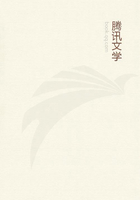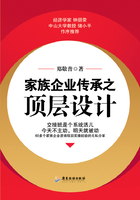The Oriental bubo-plague ravaged Italy sixteen times between the years 1119 and 1340.Small-pox and measles were still more destructive than in modern times, and recurred as frequently.St.
Anthony's fire was the dread of town and country; and that disgusting disease, the leprosy, which, in consequence of the Crusades, spread its insinuating poison in all directions, snatched from the paternal hearth innumerable victims who, banished from human society, pined away in lonely huts, whither they were accompanied only by the pity of the benevolent and their own despair.All these calamities, of which the moderns have scarcely retained any recollection, were heightened to an incredible degree by the Black Death, which spread boundless devastation and misery over Italy.Men's minds were everywhere morbidly sensitive; and as it happened with individuals whose senses, when they are suffering under anxiety, become more irritable, so that trifles are magnified into objects of great alarm, and slight shocks, which would scarcely affect the spirits when in health, gave rise in them to severe diseases, so was it with this whole nation, at all times so alive to emotions, and at that period so sorely oppressed with the horrors of death.
The bite of venomous spiders, or rather the unreasonable fear of its consequences, excited at such a juncture, though it could not have done so at an earlier period, a violent nervous disorder, which, like St.Vitus's dance in Germany, spread by sympathy, increasing in severity as it took a wider range, and still further extending its ravages from its long continuance.Thus, from the middle of the fourteenth century, the furies of THE DANCEbrandished their scourge over afflicted mortals; and music, for which the inhabitants of Italy, now probably for the first time, manifested susceptibility and talent, became capable of exciting ecstatic attacks in those affected, and then furnished the magical means of exorcising their melancholy.
SECT.3--INCREASE
At the close of the fifteenth century we find that tarantism had spread beyond the boundaries of Apulia, and that the fear of being bitten by venomous spiders had increased.Nothing short of death itself was expected from the wound which these insects inflicted, and if those who were bitten escaped with their lives, they were said to be seen pining away in a desponding state of lassitude.
Many became weak-sighted or hard of hearing, some lost the power of speech, and all were insensible to ordinary causes of excitement.Nothing but the flute or the cithern afforded them relief.At the sound of these instruments they awoke as it were by enchantment, opened their eyes, and moving slowly at first, according to the measure of the music, were, as the time quickened, gradually hurried on to the most passionate dance.It was generally observable that country people, who were rude, and ignorant of music, evinced on these occasions an unusual degree of grace, as if they had been well practised in elegant movements of the body; for it is a peculiarity in nervous disorders of this kind, that the organs of motion are in an altered condition, and are completely under the control of the over-strained spirits.
Cities and villages alike resounded throughout the summer season with the notes of fifes, clarinets, and Turkish drums; and patients were everywhere to be met with who looked to dancing as their only remedy.Alexander ab Alexandro, who gives this account, saw a young man in a remote village who was seized with a violent attack of tarantism.He listened with eagerness and a fixed stare to the sound of a drum, and his graceful movements gradually became more and more violent, until his dancing was converted into a succession of frantic leaps, which required the utmost exertion of his whole strength.In the midst of this over-strained exertion of mind and body the music suddenly ceased, and he immediately fell powerless to the ground, where he lay senseless and motionless until its magical effect again aroused him to a renewal of his impassioned performances.
At the period of which we are treating there was a general conviction, that by music and dancing the poison of the tarantula was distributed over the whole body, and expelled through the skin, but that if there remained the slightest vestige of it in the vessels, this became a permanent germ of the disorder, so that the dancing fits might again and again be excited ad infinitum by music.This belief, which resembled the delusion of those insane persons who, being by artful management freed from the imagined causes of their sufferings, are but for a short time released from their false notions, was attended with the most injurious effects:
for in consequence of it those affected necessarily became by degrees convinced of the incurable nature of their disorder.They expected relief, indeed, but not a cure, from music; and when the heat of summer awakened a recollection of the dances of the preceding year, they, like the St.Vitus's dancers of the same period before St.Vitus's day, again grew dejected and misanthropic, until, by music and dancing, they dispelled the melancholy which had become with them a kind of sensual enjoyment.
Under such favourable circumstances, it is clear that tarantism must every year have made further progress.The number of those affected by it increased beyond all belief, for whoever had either actually been, or even fancied that he had been, once bitten by a poisonous spider or scorpion, made his appearance annually wherever the merry notes of the tarantella resounded.Inquisitive females joined the throng and caught the disease, not indeed from the poison of the spider, but from the mental poison which they eagerly received through the eye; and thus the cure of the tarantati gradually became established as a regular festival of the populace, which was anticipated with impatient delight.















